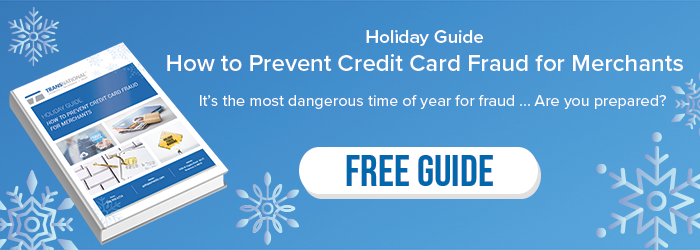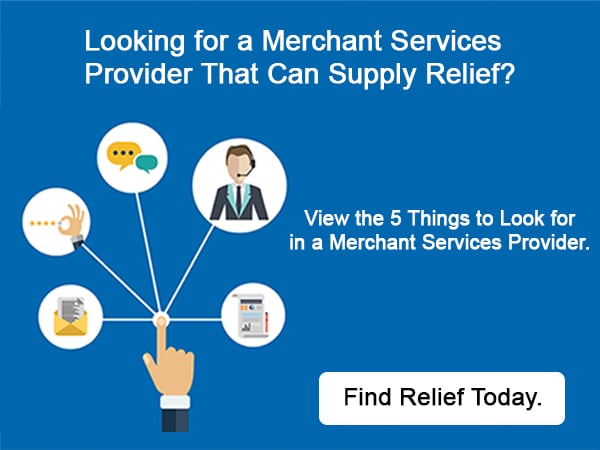
The holiday season is officially in full effect and considering it’s the busiest time of year for your small business, we know it can be stressful. Unfortunately, this time of year is also the busiest time for fraudulent activity to occur. Luckily, there are ways to help you to reduce the risk of fraud within your small business so that you can stay focused on doing what you do best — running your business. Let’s discover how you can keep this the most wonderful time of year!
Reduce Credit Card Fraud
Did you know that in 2017, 1 in every 85 transactions was a fraudulent attempt? Think about the number of transactions you process each day, especially during the holiday season — this is why it’s important to educate yourself on what you can do (ahead of time) to reduce fraudulent credit card transactions.
Card-Present Transactions
There are two types of credit card transactions, card-present transactions and card-not-present transactions. It’s essential to know what guidelines to follow for accepting and preventing fraud for each type of transaction. For card-present transactions you want to provide your customers with EMV-capable devices to allow them to make EMV chip card purchases. This is a great way to avoid chargebacks and having the responsibility of that liability. EMV chip cards are currently the most secure card available to consumers and an upgrade to this type of device is simple and affordable.
TIP: Another way to assure safe transactions is to accept mobile payments at your business — the tokenization technology for mobile payments is the best barrier for cyberattacks, as the actual card information is never stored online.
Card-Not-Present Transactions
With the increased security of chip cards and mobile payments, it has caused criminals to adjust their approach to focus more of their fraudulent activity on card-not-present transactions. Card-not-present transactions account for more than 50% of total fraud losses. This is why it’s crucial for your small business to use a secure payment gateway. This enables you to accept credit cards online (a highly susceptible channel for fraud) with helpful fraud screening tools that are necessary to expose and flag fraud when it occurs.
TIP: An additional way to stay safe is to use address and code verification services (AVS/CVV). This compares the information the customer proves with the company’s information on file and gives you a letter code to indicate if they’re completely a match. Sometimes AVS is required for certain interchange categories and protects you in chargeback disputes. Card Verification Value (CVV) are numbers that prove a customer has the actual card while making a purchase.
Both, card-present and card-not-present transactions can be secure when you’re PCI compliant. When you run a credit card without PCI certification you’re taking a huge risk of having your system compromised. This is not good, especially considering your customers’ card data can get stolen, resulting in losing their trust and facing large fines on your company.
What to Do If You Suspect Fraud
Have you ever felt like something was too good to be true, and you were right? Keep that same mindset when dealing with transactions as well — stick to your instincts. It’s important to know what to do in case you are faced with fraudulent activity and to have the proper procedures in place.
In-Store
If you or your staff are suspicious of fraud, do not share your suspicions with the customer or attempt to take the card. Instead, try to verify the customer information or contact the Authorization Center and request a Code 10 authorization. Follow the operator’s directions and capture as much customer information as you can. In addition, Visa advises that “a merchant may request cardholder identification in a face-to-face environment. If the name on the identification does not match the name on the card, the merchant may decide whether to accept the card. If the cardholder does not have or is unwilling to present cardholder identification, the merchant must honor the card.” Keep in mind, you shouldn’t process a transaction you believe to be fraudulent.
Online
It’s recommended that if you suspect a fraudulent transaction, to not run it or you should void it until you’re comfortable. You could contact the customer to confirm the information, but don’t use the phone number given for a suspect transaction. If you’re skeptical of a transaction that hasn’t been batched out yet, it’s encouraged that you void it. If you refund the order, you’ll still be charged processing fees for the original transaction and then run the risk of a chargeback.
Holiday Fraud Prevention Checklist (for your customers)
We get it — the safety of your customers’ information is a big priority for you, whether it be protecting it in-store or online. It’s also important that your customers realize it’s in their best interest to protect themselves from credit card fraud as well. Here’s a checklist you can provide your customers with to help them avoid fraud this holiday season:
- Enable fraud alerts from your issuing bank
- Report lost or stolen cards immediately
- When going shopping, only take the cards you’re going to use
- Monitor your billing statements for unauthorized activity
- Create strong passwords and avoid one-click options
- Do not make purchases using public Wi-Fi networks
- Use credit cards instead of debit cards when possible
- Take precautions when using ATMs
- Check web links for authenticity and an https security designation
- Be wary of charitable donation solicitations online and over the phone
Conclusion:
Fraud prevention isn't only important during the holiday season — it can be useful at any time of the year. It’s important that you keep your efforts proactive instead of reactive because it’s much easier to prevent fraudulent activity than attempting to reverse the damage. Keep your company safe and have a happy holiday season!
Be Proactive and Stay Educated About Fraud Prevention —
Keep Your Business Safe.










 Facebook
Facebook Twitter
Twitter LinkedIn
LinkedIn Youtube
Youtube Glassdoor
Glassdoor